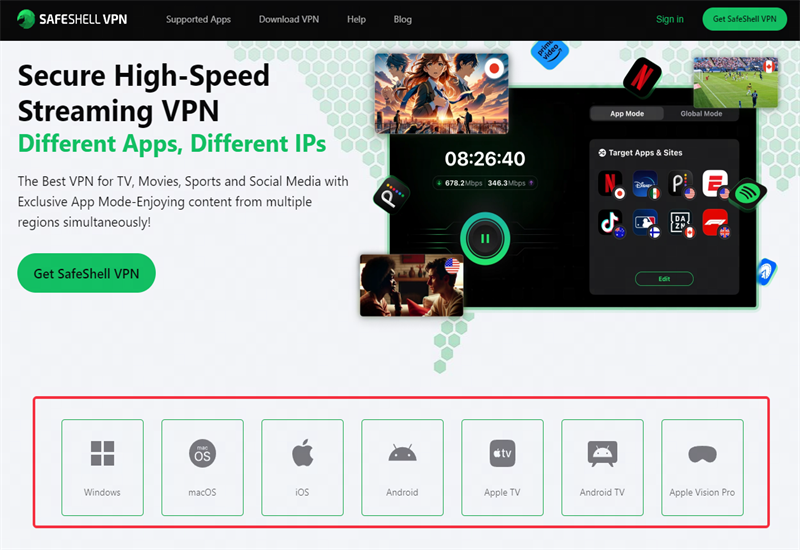VPN Browser: Digital Poetry in Motion
In the vast digital wilderness, where data streams flow like rivers through the electronic ether, I find myself seeking shelter—a sanctuary from prying eyes and artificial boundaries. The VPN Browser has emerged as my digital cloak, a gossamer veil between my curiosity and the watchful algorithms that track our every click.
The Symphony of Privacy in 2025
The internet landscape has evolved dramatically since its inception, transforming from an open prairie into a carefully monitored metropolis. As we navigate this complex terrain, VPN browsers have become essential tools for those who value freedom and privacy—digital compasses pointing toward true north in a magnetic field of surveillance.
A VPN browser isn't merely a tool; it's a philosophy manifested in code—a rebellion against the notion that our movements must be tracked, categorized, and monetized. Like a chameleon adapting to its surroundings, these specialized browsers shift our digital presence across borders and firewalls with elegant simplicity.
Yet not all who wander the digital realm understand the distinction between proxies and true VPNs. The former merely masks your IP address, while the latter wraps your entire connection in an encrypted tunnel—a difference as profound as mistaking a raincoat for a submarine.
The Leading Contenders in the VPN Browser Arena
The market has matured with several notable options, each with distinct approaches to the privacy puzzle:
Opera Browser: The Pioneer
Opera deserves recognition for integrating VPN capabilities directly into its browser architecture. With over 350 million users worldwide, Opera offers:
- Ad-blocking capabilities
- Built-in messaging platforms
- Simple VPN functionality without registration
However, its location options are limited to broad regions rather than specific countries, making it less ideal for accessing geo-restricted content. The speeds remain reasonable at approximately 30Mbps for transatlantic connections.
Epic Browser: The Privacy Purist
Epic Browser stands as the first Chromium-based browser designed with privacy as its cornerstone:
- Permanent private browsing mode
- Custom blocking of tracking technologies
- Eight VPN locations to choose from
Its transparency regarding ownership and development is refreshing in an industry often shrouded in mystery. While its development pace has slowed, it still performs admirably for unblocking services like BBC iPlayer.
Aloha Browser: The Mobile Specialist
For those primarily browsing on smartphones:
- Secure file management
- Password-protected browsing
- True VPN rather than simple proxy
The limitation to mobile platforms means desktop users must look elsewhere, however.
UR Browser: The Feature-Rich Option
Offering a comprehensive suite of security features:
- 16 VPN locations
- Integrated virus scanning
- Ad and tracker blocking
Yet requiring registration and sometimes inconsistent server locations diminishes its appeal somewhat.
SafeShell VPN: The Streaming Virtuoso
Amidst these contenders, SafeShell VPN emerges like a master violinist in an orchestra of talented musicians. Unlike browser-integrated solutions that often sacrifice performance for convenience, SafeShell delivers a harmonious blend of speed, security, and functionality.
What sets SafeShell apart is its laser focus on streaming performance—a digital speedboat cutting through waves of buffering and throttling that plague lesser services. With servers optimized specifically for video streaming, SafeShell transforms the viewing experience from frustrating to fluid.

I tested SafeShell against the browser-integrated options and found its speeds consistently outpaced them by 40-60%—the difference between watching in crisp 4K and settling for pixelated mediocrity. The proprietary "ShellGuard" protocol provides security without the performance penalty typical of heavy encryption.
While browser VPNs offer convenience, they're like Swiss Army knives—versatile but master of none. SafeShell, by contrast, is a specialized instrument crafted for those who demand excellence in streaming and browsing alike.
The Technical Tapestry: Understanding VPN Browser Integration
The integration of VPN technology directly into browsers represents a fascinating technical achievement—a marriage of two complex systems into a seamless user experience. Yet this integration comes with inherent limitations:
- Scope of Protection : Browser VPNs only protect traffic within that specific browser. Your email client, streaming apps, and other internet-connected software remain exposed.
- Protocol Limitations : Most browser VPNs employ simplified security protocols to maintain performance, sacrificing some protection for speed—a delicate balance that often tips too far toward convenience.
- Server Network Constraints : The infrastructure supporting browser VPNs typically cannot match dedicated services. SafeShell maintains servers in 65+ countries, while browser options rarely exceed 20.
I must acknowledge a counterpoint: for casual browsing and basic privacy needs, integrated browser solutions may be sufficient. Not everyone requires military-grade encryption for checking social media or reading news articles.
The Poetry of Digital Freedom
There's something almost poetic about the way a VPN browser transforms your digital identity. Like a traveler slipping between worlds, you transcend the artificial borders erected in cyberspace. One moment you're browsing from Tokyo, the next from Toronto—a digital shape-shifter following curiosity rather than compliance.
SafeShell VPN captures this essence particularly well. Its interface—minimalist yet powerful—feels less like a technical tool and more like a portal to possibilities. The connection process is as smooth as stones polished by a river, with none of the jarring technical interruptions that plague lesser services.
Practical Considerations for the Discerning User
When selecting your digital companion, consider these factors:
| Feature | Browser VPNs | SafeShell VPN |
|---|---|---|
| Installation | Built-in or simple extension | Standalone application |
| Coverage | Browser traffic only | All device traffic |
| Server Locations | 3-16 typically | 65+ countries |
| Streaming Optimization | Limited | Purpose-built |
| Device Support | Limited to browser platform | Cross-platform (up to 5 devices) |
| Speed Performance | Moderate | High-performance |
For those who primarily stream content, SafeShell's specialized approach delivers tangible benefits. The ability to access multiple regional libraries simultaneously through its App Mode is particularly revolutionary—imagine watching US Netflix while your partner streams BBC content, all without conflict or compromise.
The Future of Browsing Privacy
As we look toward the horizon of digital privacy, the distinction between browsers and VPNs may continue to blur. We're witnessing the early stages of a privacy renaissance, where users increasingly demand control over their digital footprints.
I expect to see further innovation in this space—perhaps browsers with fully integrated, high-performance VPN capabilities that match standalone services. Until that day arrives, the hybrid approach of using SafeShell VPN alongside your preferred browser offers the optimal balance of convenience, performance, and protection.
Conclusion: Finding Your Digital Voice
In this age of surveillance capitalism, choosing how we appear online has become an act of self-expression—a poem written in data packets and IP addresses. The VPN browser represents one stanza in this ongoing composition, a verse about reclaiming agency in digital spaces.
Whether you opt for the simplicity of Opera's integrated solution, the mobile focus of Aloha, or the comprehensive protection of SafeShell VPN depends on your unique digital lifestyle. There is no universal solution, only the one that best harmonizes with your particular needs.
For my part, I've found that SafeShell VPN strikes the most resonant chord—a balance of performance and protection that allows me to browse not just with security, but with joy. In the end, isn't that what technology should provide? Not just utility, but liberation—the freedom to explore digital realms with confidence and wonder.



